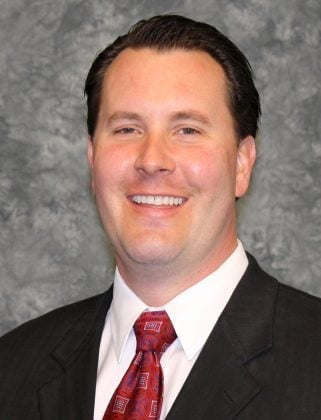As a credit union, have you heard this before, or worse yet, have you spoken these words? Why is this one of the few industries dominated by what wecan’tdo rather than what wecando?
Have credit unions not historically played by the rules?Have credit unions not consistently stepped up, especially in challenging markets, and served the needs of our members?Then why are we so concerned with what our community banking counterparts will say or do?
Truth be told, the biggest issue facing community bankers is not credit unions. It’s the “too big to fail” depository behemoths who have done nothing but capture more market share since the Great Recession. The top 5 largest banks domestically control approximately the same amount of assets ($1.5 trillion) as the entire credit union space combined.
What does this mean for us as credit unions?It means that the noise from community bankers is just that, noise.The leadership currently in place at the NCUA realizes this; why don’t most credit unions?Well for starters, there are some legacy patterns that are difficult to break, and there are some zombie credit unions that are just waiting to be merged. There are also innovative credit union programs that are not widely accepted, due solely to a lack of visibility. The first two issues are unacceptable but the third will solve itself over time.
As community-conscious stewards of our membership, is it not our responsibility to provide the absolute best services possible?Then how do we change those legacy patterns and break out of “Oh, we can’t do that”?
My contention would be that you challenge the process wherever possible.Currently, low income designated credit unions have far more resources available to them than ever before.A low income designated credit union can accept non-member funding from any source, receive exemption from the aggregate loan limit for member business loans and accept secondary capital.
Let that sink in for a moment. As a CUSO, we speak with hundreds of credit unions each year, and they tell us the two biggest issues facing them are funding and the inability to grow.
Let’s compartmentalize these issues and discuss individually.How many of you out there are in this position?Your credit union has robust loan demand, a net worth ratio near or above 10%, but you can’t find the funding you need.Unless a major corporation is in talks to bring thousands of jobs to your community, you are going to have to find funding elsewhere.
Did you know low income designated credit unions can access funding from any source?That means DTC brokered funding, money market funding and a plethora of other sources.Low income designated credit unions have guidelines they must follow, but think of the advantages the designation creates.Do you really want to look your members in the face and say we no longer offer those loans because we either don’t understand the advantages of low income designation or are just unwilling to apply?Like I stated above, you have a responsibility to provide the absolute best products and services to your membership.
Here’s another scenario. How many of you have spent months or even years building sales momentum?You’ve hired qualified community conscious leaders, and spent thousands of dollars on marketing and advertising, only to find that your retained earnings will not or cannot keep pace with your projected growth.
What are you to do?Stop? Tap the breaks?Or worse yet, slow down the momentum that has cost you thousands of dollars and immeasurable hours.My suggestion again is to challenge the status quo and grow.CMS is making secondary capital available to low income designated credit unions.These are strong, well-capitalized, well positioned credit unions missing the only ingredient necessary to grow.Secondary capital would allow most credit unions in this position the ability to continue on their current path.
Your membership deserves their credit union operating under this mindset.Your net worth ratio might be an issue, but only if you allow it to be.Like everything else we do, only when you challenge the process will you find real solutions.Settling for hypothetical conjecture from a faceless community banking competitor is not only foolish but disadvantaging the members you serve.
Let’s not settle for “Oh, we can’t do that”.Let’s challenge ourselves and our industry to be the best we can for our membership. In the end, isn’t that all that matters?







